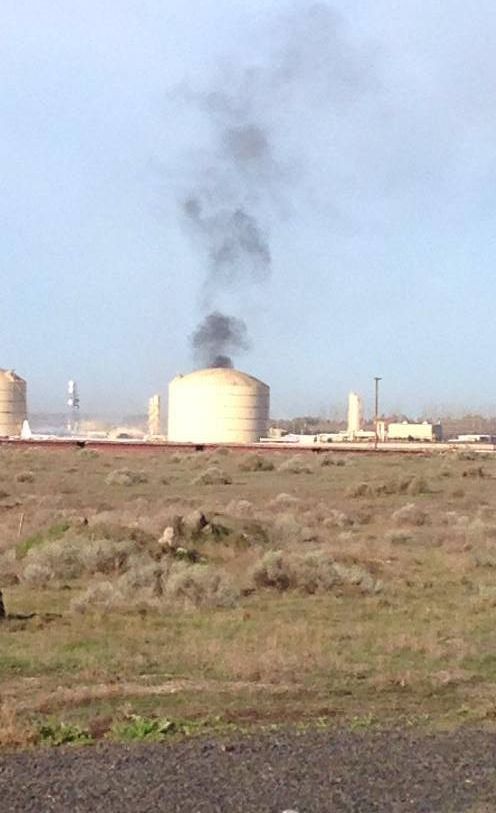 Apparently pipeline companies are the last to know that pipelines can be dangerous,
even after Williams Co’s four strikes this year.
Maybe they should stop believing their own propaganda.
And why do pipeline companies get four strikes and they’re still not out, anyway?
Apparently pipeline companies are the last to know that pipelines can be dangerous,
even after Williams Co’s four strikes this year.
Maybe they should stop believing their own propaganda.
And why do pipeline companies get four strikes and they’re still not out, anyway?
Dory Hippauf wrote for No Fracking Way 8 May 2014
Williams Co Has Gomer Pyle Moment,
Recently, the Williams Company, the 4th largest pipeline operator in
the US, experienced 3 accidents in rapid succession between Feb-Apr
2014.
As reported by Bloomberg news “Williams Reviews Safety After
Fire, Explosions at Gas Plants“, May 1, 2014:
 “Certainly, this has come as a big surprise to our
organization,” Chief Executive Officer Alan Armstrong said on
a conference call with analysts today. “We are conducting very
thorough investigations into each incident to determine if there’s
any common or root cause.”
“Certainly, this has come as a big surprise to our
organization,” Chief Executive Officer Alan Armstrong said on
a conference call with analysts today. “We are conducting very
thorough investigations into each incident to determine if there’s
any common or root cause.”
Why it comes as a big surprise to CEO Armstrong is, well,
surprising. It’s well known that pipelines and related
infrastructure do have spills, leaks, fires and explosions resulting
in property damage, injuries and deaths. At a time when fossil fuel
corporations are expanding and building new infrastructures and
pipelines, safety, not profits, should be the foremost
consideration.
Follow
the link for the list of Williams Co. incidents,
which includes many more than these few big ones from 2014:
-
 PHMSA deputized Oregon PUC to investigate three-month Williams Co. methane leak, starting 10 January 2014
PHMSA deputized Oregon PUC to investigate three-month Williams Co. methane leak, starting 10 January 2014
-
 Williams fire and explosion near Plymouth, WA 2014-03-31
Williams fire and explosion near Plymouth, WA 2014-03-31
-
 Williams Oak Grove explosion in Marshall County, WV 2014-04-05
Williams Oak Grove explosion in Marshall County, WV 2014-04-05
-
 Williams explosion and fire, Opal, WY 2014-04-23
Williams explosion and fire, Opal, WY 2014-04-23
That’s four “abnormal operations” or accidents so far in 2014 alone.
In baseball only three strikes and Williams would be out.
Why does a pipeline company get nothing but PR out of all this?
What’s an actual accident or “abnormal operations” anyway?
PHMSA uses
definitions from the American Petroleum Institute (API),
and requires pipeline operators to put out propaganda according to
API guidelines.
Maybe Williams CEO Alan Armstrong actually believed that API propaganda.
The No Fracking Way article also notes:
According to Tom
Droege, Williams Co. spokesperson, as stated in an email, over
the last five years, Williams has had a lower rate of incidents on its
pipelines than the industry average, he said, citing federal statistics.
Hm, so if Williams has fewer than the industry average, where does Spectra rank?
Droege failed to mention the industrial average was 1.6 pipeline
incidents per day, so what does a “lower rate of
incidents” really mean?
And who ever heard of a solar panel leak or explosion?
What say we cancel the pipeline and go straight to
faster, cheaper, safer, job-creating solar power.
-jsq
 Of course FPL and Spectra don’t want FERC to look at fracking,
but nothing in FERC’s own rules says it can’t,
and a recent court case might be a precedent to get it to do so.
Maybe Audubon Florida is discovering trying to tinker with pipeline routes
is like signing up for the 1885 Berlin Conference that divided Africa
by drawing lines on a map.
Sierra Club Florida, Georgia, and Alabama already understand the only
appropriate route for that fracked methane boondoggle is no route,
with new power from the sun.
Of course FPL and Spectra don’t want FERC to look at fracking,
but nothing in FERC’s own rules says it can’t,
and a recent court case might be a precedent to get it to do so.
Maybe Audubon Florida is discovering trying to tinker with pipeline routes
is like signing up for the 1885 Berlin Conference that divided Africa
by drawing lines on a map.
Sierra Club Florida, Georgia, and Alabama already understand the only
appropriate route for that fracked methane boondoggle is no route,
with new power from the sun.









